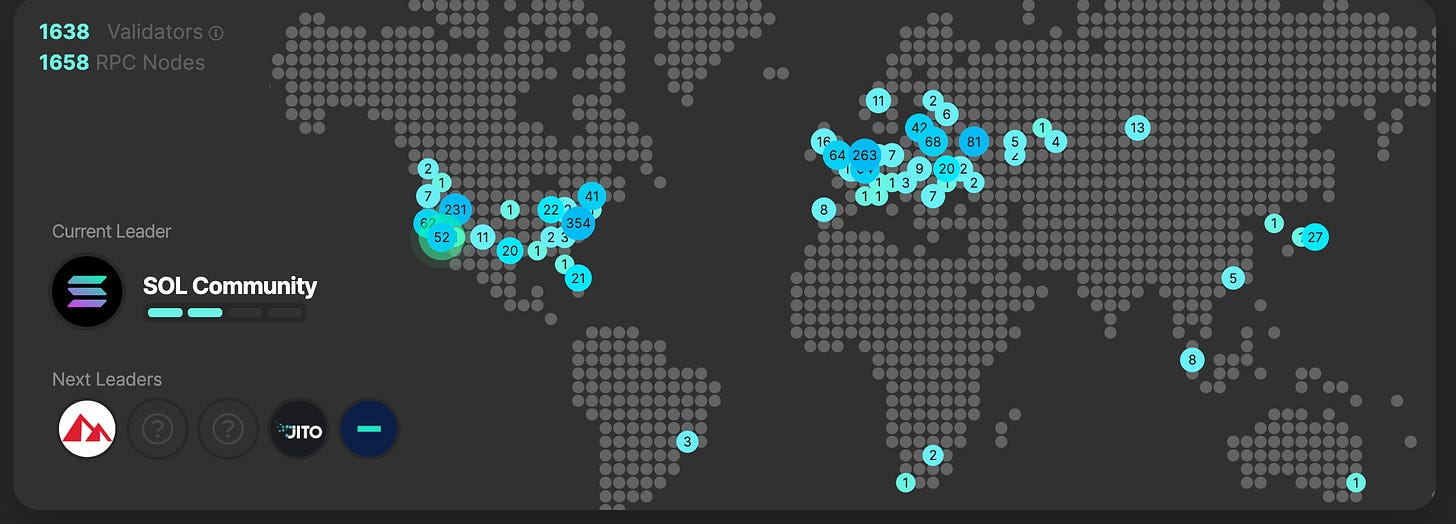
Why a base Fee Mechanism and Optimal Blocks
Mechanism
a. Dynamic Fees
b. Multidimensional Fees: Local Fees Market
Solana’s Economics Dilemma & Future Perspectives
Solana Blockchain is known for it’s high speed, scalability and cheap fees. However this cheap fees has raised many questions on its future existence and sustainability.
This fees on solana varies from 0.00005 sol to 0.1 sol ( $0.0001 to $0.1) on average including both base fees and priority fee. However these fees generates a really less rewards for the Validators hence the current mechanics of fees does not support the narrative for validators to run nodes and make the system more decentralised.
Compared to other chains like Ethereum and, the gas fees supports the validators to run nodes profitably. Ethereum uses high fees mechanism, due to which its gas fees ranges form
Lets deep dive into the Solana and its fee mechanics and find will Solana exist when the inflation will be fixed to 1.5%.

Current Validators of Solana
Solana’s network achieves high performance and security through its unique consensus mechanisms, notably Proof of History (PoH) and Proof of Stake (PoS), combined with the pivotal role of validators. Let’s understand about them in detail.
Now since the Solana uses PoS with PoH, let’s understand the process of validation for a transaction.
In Solana's network, the Delegated Proof of Stake (DPoS) mechanism is employed, which permits SOL token holders to assign their tokens to network validators. This process grants validators additional 'weight' within the network, potentially increasing their chances to be selected for block leadership and enhancing their reward prospects for participating in the voting process.
Token holders who delegate their SOL maintain absolute authority over their assets, with the liberty to revoke the delegation and reclaim their tokens at any moment, irrespective of the validator's performance or operational status.

Umbra Research
Solana's blockchain operates in cycles known as epochs, each spanning roughly two to three days and encompassing around 420,000 blocks. The network targets a block interval of 400 milliseconds. Validators are tasked with casting votes on every block, which demands continuous activity. The compensation they receive is directly linked to their voting accuracy, as any delay in voting can lead to the vote being deemed invalid.